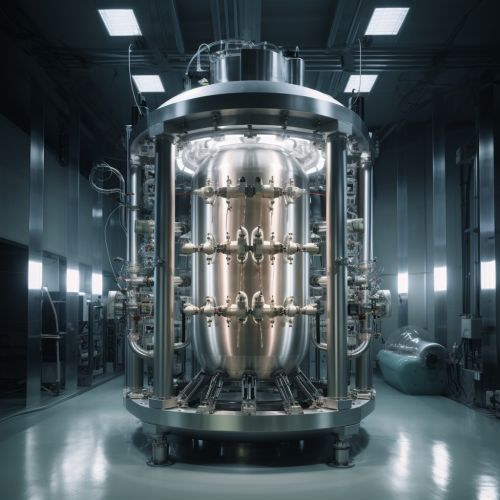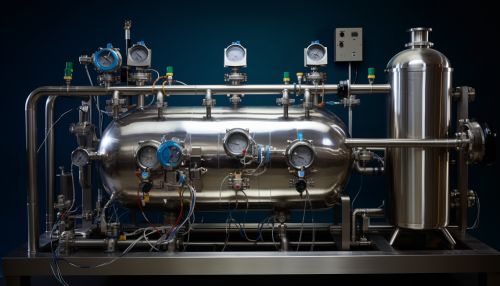Bioprocess Engineering
Introduction
Bioprocess engineering, also known as biochemical engineering, is a specialized discipline that merges the principles and practices of biology and engineering. This field focuses on the design and development of equipment and processes for the manufacturing of products such as agricultural, food, feed, pharmaceuticals, nutraceuticals, chemicals, and polymers and paper from biological materials & treatment of waste water. Bioprocess Engineering is an amalgamation of mathematics, biology and industrial design, and consists of various spectrums like designing of bioreactors, study of fermentors (mode of operations etc.). It also deals with studying various biotechnological processes used in industries for large scale production of biological product for optimization of yield in the end product and the quality of end product. Bioprocess engineering may include the work of mechanical, electrical, and industrial engineers to apply principles of their disciplines to processes based on using living cells or sub component of such cells.


History
The roots of bioprocess engineering can be traced back to ancient times, where simple bioprocesses were used to produce food products like bread, beer, and wine using yeast. However, it was not until the 19th century that bioprocess engineering began to emerge as a distinct discipline. The discovery of microorganisms and their impact on biochemical processes laid the foundation for the development of bioprocess engineering. The 20th century saw a rapid growth in this field, with advancements in biotechnology leading to the development of a wide range of pharmaceutical and chemical products.
Principles of Bioprocess Engineering
Bioprocess engineering involves the application of various principles of chemical engineering to biological systems. These principles include:
Mass Transfer
Mass transfer is a fundamental concept in bioprocess engineering. It involves the movement of physical quantities from one area to another. In bioprocess engineering, this often refers to the transfer of substrates, products, and by-products in and out of a bioreactor.
Heat Transfer
Heat transfer is another important principle in bioprocess engineering. It involves the movement of heat from one place to another. In bioprocess engineering, this is crucial for maintaining the optimal temperature for the growth and activity of microorganisms.
Fluid Dynamics
Fluid dynamics is the study of the movement of liquids and gases. In bioprocess engineering, it is important for understanding the mixing and aeration of cultures in a bioreactor.
Reaction Kinetics
Reaction kinetics is the study of the rates of chemical reactions. In bioprocess engineering, it is used to understand and control the growth rates of microorganisms and the rates of biochemical reactions.
Applications of Bioprocess Engineering
Bioprocess engineering has a wide range of applications in various industries. These include:
Pharmaceutical Industry
In the pharmaceutical industry, bioprocess engineering is used for the production of various drugs and vaccines. This involves the use of bioreactors for the cultivation of microorganisms, which are then used to produce the desired products.
Food and Beverage Industry
In the food and beverage industry, bioprocess engineering is used for the production of various food products such as cheese, yogurt, and wine. This involves the use of fermentation processes and the application of various bioprocess engineering principles.
Biofuel Industry
In the biofuel industry, bioprocess engineering is used for the production of biofuels such as bioethanol and biodiesel. This involves the use of microorganisms for the fermentation of sugars to produce ethanol, and the transesterification of vegetable oils to produce biodiesel.
Waste Treatment
Bioprocess engineering is also used in waste treatment processes. This involves the use of microorganisms to break down waste materials and convert them into less harmful substances.
Future of Bioprocess Engineering
The future of bioprocess engineering looks promising, with the increasing demand for sustainable and eco-friendly processes. The field is expected to play a crucial role in the development of green technologies, such as biofuels and bioplastics. Moreover, advancements in genetic engineering and synthetic biology are expected to open up new avenues for bioprocess engineering.
